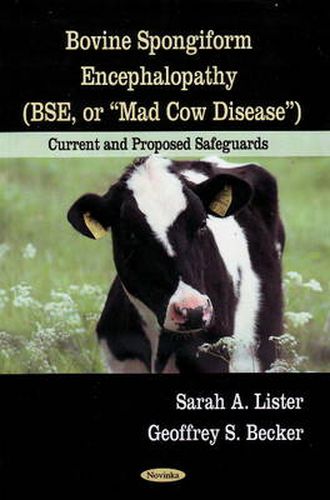Readings Newsletter
Become a Readings Member to make your shopping experience even easier.
Sign in or sign up for free!
You’re not far away from qualifying for FREE standard shipping within Australia
You’ve qualified for FREE standard shipping within Australia
The cart is loading…






Through mid-May 2007, the United States had confirmed three cases of bovine spongiform encephalopathy (BSE, or mad cow disease ): the first in December 2003 in a Canadian-born cow found in Washington state, the second in June 2005 in cow in Texas, and the third in March 2006 in a cow in Alabama. Shortly after the first case, U.S. Department of Agriculture (USDA) and other officials announced measures to improve existing safeguards against the introduction and spread of BSE. Previously, the major safeguards were: (1) USDA restrictions on imports of ruminants and their products from countries with BSE; (2) a ban on feeding most mammalian proteins to cattle and other ruminants, issued by the Food and Drug Administration (FDA); and (3) a targeted domestic surveillance program by USDA’s Animal and Plant Health Inspection Service (APHIS), the agency responsible for animal health monitoring and disease control.
$9.00 standard shipping within Australia
FREE standard shipping within Australia for orders over $100.00
Express & International shipping calculated at checkout
Through mid-May 2007, the United States had confirmed three cases of bovine spongiform encephalopathy (BSE, or mad cow disease ): the first in December 2003 in a Canadian-born cow found in Washington state, the second in June 2005 in cow in Texas, and the third in March 2006 in a cow in Alabama. Shortly after the first case, U.S. Department of Agriculture (USDA) and other officials announced measures to improve existing safeguards against the introduction and spread of BSE. Previously, the major safeguards were: (1) USDA restrictions on imports of ruminants and their products from countries with BSE; (2) a ban on feeding most mammalian proteins to cattle and other ruminants, issued by the Food and Drug Administration (FDA); and (3) a targeted domestic surveillance program by USDA’s Animal and Plant Health Inspection Service (APHIS), the agency responsible for animal health monitoring and disease control.